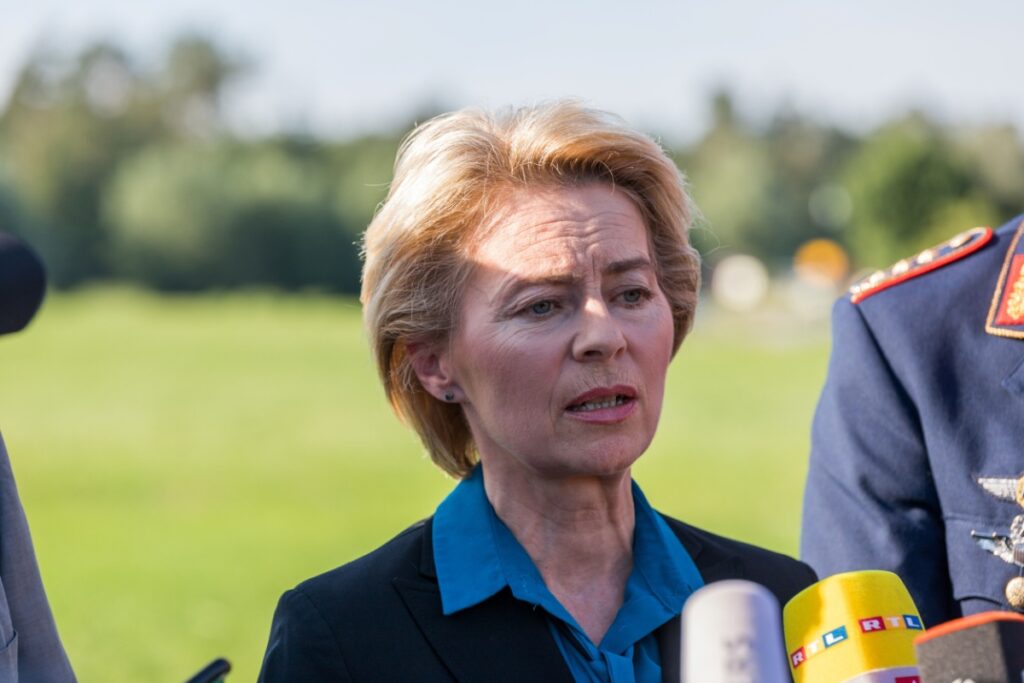On September 1, 2025, a chartered aircraft carrying European Commission President Ursula von der Leyen suffered a significant navigational failure while flying through Bulgarian airspace. According to Bulgarian officials, the plane’s GPS system was deliberately jammed, an act they attributed to Russia. The disruption forced pilots to switch to backup systems and conduct a controlled landing at Plovdiv Airport.
The aircraft touched down safely, and no injuries were reported. Despite the disruption, von der Leyen continued with her planned four-day diplomatic tour of Eastern European member states, which includes visits to Romania, Bulgaria, and Greece. Her mission centers on strengthening European security and addressing hybrid threats in the region.
Disruption and Immediate Response
The interference occurred as the plane was preparing for descent. Pilots suddenly lost access to the GPS signal, a vital tool for modern aviation. Air traffic controllers and the flight crew promptly shifted to ground-based navigation aids and relied on traditional paper charts to complete the approach and landing.
European Commission spokesperson Arianna Podestà confirmed that Bulgarian authorities identified the interference as GPS jamming, most likely originating from Russian sources. While it remains unclear whether von der Leyen’s aircraft was the direct target, intelligence experts noted that Moscow was likely aware of her movements and may have sought to project its ability to disrupt critical infrastructure.
Aviation safety experts emphasized that while commercial and official flights are trained to handle such emergencies, the deliberate obstruction of navigational signals poses considerable risks. Any miscalculation during a landing in compromised conditions could result in severe accidents, underscoring the seriousness of the incident.
Broader Context of GPS Interference
The disruption over Bulgaria is part of a wider trend of electronic interference across Eastern Europe. Since Russia’s full-scale invasion of Ukraine in 2022, Western governments have observed a sharp increase in GPS jamming and spoofing operations targeting aviation, maritime traffic, and even civilian infrastructure.
Recent data underscores the growing scale of the problem. In Poland, authorities recorded 2,732 cases of GPS disruption in January 2025, compared with 1,908 incidents in October 2023. Similarly, Lithuania documented 1,185 cases in January, more than double the 556 reports logged in March 2024. Officials in Finland, Latvia, and Estonia have also raised alarms over persistent interference near their borders.
Analysts note that GPS jamming is a low-cost tactic with high impact, capable of sowing confusion and undermining confidence in basic infrastructure. Unlike large-scale military strikes, such measures fall into the realm of hybrid warfare, allowing states to apply pressure and test adversaries without crossing the threshold into open conflict.
Security observers warn that the continued escalation of such operations could affect not only official and commercial flights but also emergency services, shipping routes, and financial systems, all of which rely heavily on accurate satellite navigation.
EU’s Response and Future Measures
In the wake of the incident, EU Defence Commissioner Andrius Kubilius announced that the bloc will accelerate efforts to strengthen resilience against satellite signal interference. Plans are underway to deploy a new generation of low Earth orbit satellites designed to reduce vulnerabilities and ensure continuity of navigation even under hostile conditions.
At the political level, von der Leyen used the event to highlight the urgency of reinforcing European security architecture. During her tour, she stressed the need for member states to increase defense spending, modernize their armed forces, and expand cooperation in the face of ongoing hybrid threats from Russia.
The Bulgarian government confirmed it would provide detailed findings to NATO allies, ensuring that the incident informs broader collective defense planning. Meanwhile, aviation authorities across the continent are reviewing procedures for handling similar interference cases, emphasizing the importance of pilot training and backup systems.
European leaders view the disruption as another reminder of the challenges posed by Russia’s hybrid warfare strategy, which combines traditional military threats with electronic and cyber operations. The EU’s response, they say, will need to balance immediate defensive measures with long-term investments in technological resilience.


